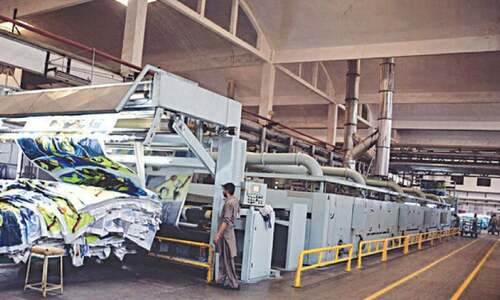 It may not turn out to be a happy season for the sugar cane growers if the Pakistan Sugar Mills Association (PSMA) holds back payment of more than Rs20 billion to farmers for the current cane crop.
It may not turn out to be a happy season for the sugar cane growers if the Pakistan Sugar Mills Association (PSMA) holds back payment of more than Rs20 billion to farmers for the current cane crop.
The PSMA has linked payment of officially-fixed sugar cane procurement prices to the increase in the ex-factory sugar rate by at least Rs7 per kg.
The millers have been lobbying at the highest level in the federal capital to make the government agree to its demand for increasing the ex- factory prices from the current Rs22 per kg to Rs29-30. The millers say that the sugar industry has been hit hard by “reverse crisis” – a market situation in which prices of a commodity falls sharply.
Lately, the PSMA has been exerting pressure on the government to buy at least half a million tons of sugar from the mills through the Trading Corporation of Pakistan (TCP) at ex-mills rates of Rs29-30 per kg and start exporting it. They have also met the caretaker Prime Minister Mohammedmian Soomro and a number of high-ups of the federal ministry of food, agriculture and livestock (Minfal) and the ministry of industries with the hope of winning their support. If accepted, the PSMA’s demand would cost the government over Rs50million loss because prices of sugar are lower in the international market.
The move would curtail supplies in the domestic market that will ultimately jack up the domestic retail sugar prices.
So, consumers who are already hit by the higher prices of wheat flour, oil and vegetables would have to brace for another price hike.
The PSMA has also announced that Sindh-based mills were in no position to pay the Rs60per 40-kg officially fixed sugarcane price to farmers this year due to crisis in the sugar industry. The government has already brought the official sugarcane procurement rates downward but mills are not ready to even pay the lowered rates.
In a latest stunner, mills have threatened not to buy sugar cane in certain areas hit by below zero temperature in mid-January. The millers say frost had caused “bacterial reversion” in the sugarcane badly disturbing the sucrose level in the crop. So, misfortunes are being showered on the farmers from different corners, while they are already perturbed over the situation.
The announcements by the millers – first of holding back payments and now threatening to not buy sugarcane due to bacterial reversion – have created a sort of selling panic. Reportedly, farmers in Punjab and Sindh have started selling their sugarcane at weigh bridges to middlemen at as low rates as Rs45-50 per 40 kg in order to get speedy payments. In some areas, farmers said to have sold their crop even cheaper. Officials of the Minfal are of the view that prices of sugar this season were considerably lower in the international market and that reverse crisis was not restricted to the Pakistan alone. Minfal says growers must be paid the officially fixed rates without any delay otherwise it would have grave repercussions not only on next cane crop but the sugar industry as well.
The government is of the view that millers have minted money during the last sugar crisis that saw domestic prices cross Rs42 per kg. At that time, millers were against protectionism and raised prices of sugar to the international level. But now the PSMA is preaching protection for the domestic market, while shutting its eyes to the realities of the international market. The decline in the prices of sugar in the international market was caused by the arrival of Indian sugar. India, this year, has produced 29 million tons of sugar, some 10 million tons more than its annual domestic needs. The additional sugar is now reportedly being dumped in the international market and is pulling down the prices, creating a controversy as India is paying a heavy subsidy on sugar transport from mills to ports. “We understand that farmers will suffer a lot if they don’t get money for the sugarcane crop,” says the PSMA Vice-Chairman Iskandar M Khan.
He says the skyrocketing cost of production on the farm has also added to the woes of the farmers. According to agricultural economists, cost of production of various crops including sugarcane and wheat has more than doubled just over the last two seasons. He says mills will definitely pay to farmers provided the government increases the ex-factory sugar rates. Otherwise, he adds, the PSMA is justified in holding back payments to farmers. The PSMA says it had warned the government about the crisis in May last year and called for fixing higher ex-factory sugar rates. The PSMA alleges that 60 per cent of the 450,000 tons of Indian duty-free sugar, meant to be exported to Afghanistan via Karachi under the Afghan Transit Trade scheme has been dumped in the Pakistani market.
In its view, Afghanistan’s annual sugar consumption is only 150,000 tons, while India has exported 450,000 tons under the scheme just in the past six months, indirectly targeting the Pakistani market. Brazil and Thailand, the PSMA says, have challenged the Indian move of paying a subsidy of $37 on sugar in the World Trade Organisation (WTO). Both the countries have contended that the move had distorted the international market prices.
The PSMA has demanded of the government to launch an investigation into the Trading Corporation of Pakistan (TCP)’s move to import 1.6 million tons of sugar two years ago, while the country needed only 400,000 tons. The government had to pay a subsidy of Rs16 billion on selling this sugar through utility stores at discounted price.
But, amidst lobbying by mill owners for increasing sugar prices, the voice of the farmers is weak and neglected, while consumers have been driven to the back seat.













































